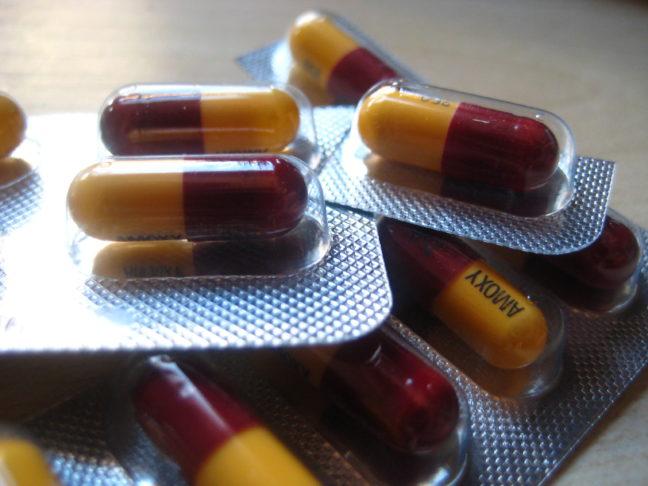As antibiotic resistance increasingly becomes a serious problem, one University of Wisconsin professor is looking to find an alternative to the lifesaving drug.
Jan Peter Van Pijkeren, UW assistant professor of food science in the College of Agricultural and Life Sciences, is researching alternatives that are more efficient and have fewer side effects than antibiotics. He is developing an approach based on the use of health-promoting bacteria that deliver a load of DNA lethal to the pathogen. A pathogen is any micro-organism that can cause a disease.
“It has become clear that the microbial community plays an important role in maintaining health,” Van Pijkeren said. “Alternatives are needed to provide a more subtle approach to eradicate a pathogen.”
Van Pijkeren called antibiotics “sledgehammers” that wipe out complex microbial communities. These communities are mostly good for the human body and assist in various functions including digestion. Putting microbial communities to work, as Van Pijkeren’s alternative would, could prevent the complete destruction of both disease-causing and health-promoting microbes.
Another downside to the continued use of antibiotics is that the body develops resistance to health-promoting microbes. Because of the drug’s frequent clinical and agricultural uses, resistance is much more common than believed, Van Pijkeren said.
“Since there have been few to none alternative treatment strategies developed, antibiotic resistance is considered a major threat in 21st century medicine,” Van Pijkeren said.
UW professor’s research looks to make future more sustainable
The increase in antibiotic-resistant bacteria is making finding a more effective solution more important than ever, Van Pijkeren said.
Van Pijkeren said the use of probiotics will be similar to releasing a “trojan horse.” The probiotic has a bacteriophage, or a bacterial virus that is specific to the pathogen. The bacteriophage will contain DNA that is lethal to the pathogenic bacterium and once it reaches the human gut, it will release the lethal load into the pathogen.
“The virus binds specifically to the pathogenic bacterium and injects the lethal load in the pathogen,” Van Pijkeren said. “The virus and the lethal load are specific to the pathogen, and thus is it expected that the complex microbial community is not affected.”
If this process works, the pathogen will destroy its own DNA and ultimately stop multiplying.
Van Pijkeren’s work has mostly focused on a gastrointestinal pathogen that can result in severe inflammation of the colon. That pathogen operates by colonizing the gut after the microbial community has been completely removed by the antibiotics. Antibiotics can remove the microbial community that keeps the pathogen at bay, which allows it to spread.
“There is an urgent need to develop novel technologies that can supplement or replace the use of antibiotics,” Van Pijkeren said.



















